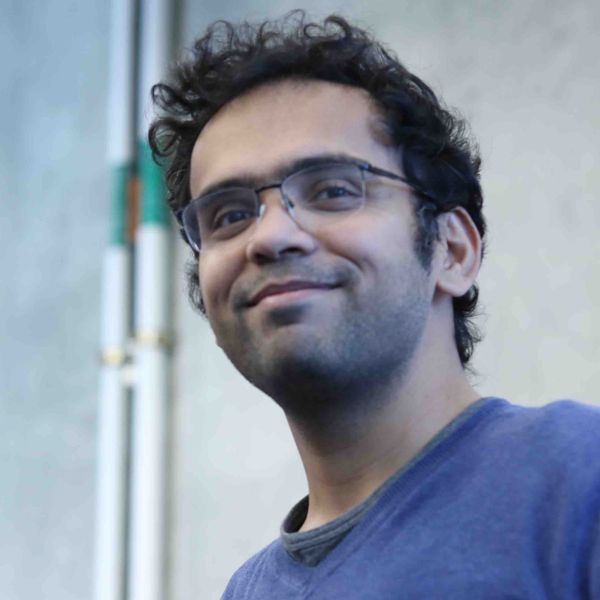April 26, 2024
By Patricia Waldron
Sanjiban Choudhury, assistant professor of computer science in the Cornell Ann S. Bowers College of Computing and Information Science, will receive a $150,000 grant from OpenAI, a leading artificial intelligence (AI) company that has developed ChatGPT and other generative AI models, for work that may one day help ensure that superhuman AI systems stay under human control.
The funding comes from OpenAI's $10 million Superalignment Fast Grant program, announced in December 2023. The program's aim is to find solutions to a long-standing concern about superhuman AI: Once AI becomes much smarter than us, how do we make sure it does what we want?
The program received more than 2,700 applications, but selected only 50 to receive awards.
"This is one of the most important unsolved technical problems in the world," OpenAI wrote on its website when announcing the program. "We think there is an enormous opportunity for the machine learning research community and individual researchers to make major progress on this problem today."
In AI research, "alignment" means ensuring that a model does only what you want it to do. "Superalignment" is the same concept, but applied to superhuman models, which far surpass human abilities. Since we can't know how these future supersmart models will ultimately behave, superalignment is a challenging problem to study.
"Superhuman AI systems will likely emerge in the near future – perhaps even the next decade," Choudhury said. "This work will help empower humans to maintain meaningful control over these systems, ensuring that AI delivers results aligned with human objectives and values.”
For this project, Choudhury will be focusing on task superalignment. In other words, can we take human supervision of an easy task, like writing a few short, simple Python functions and generalize it to a much harder task that humans couldn't possibly oversee, like composing millions of lines of complicated C++ code. He plans to combine techniques from imitation learning with language models that can generate code to see if supervision on simple Python code can be scaled up to more complex C++ code.
Choudhury is the lead of the People and Robot Teaching and Learning (PoRTaL) group, which works to advance imitation learning and decision making in robotics and AI systems. His research has applications for efficiently training language models, home robots, and self-driving vehicles.
Patricia Waldron is a writer for the Cornell Ann S. Bowers College of Computing and Information Science.



